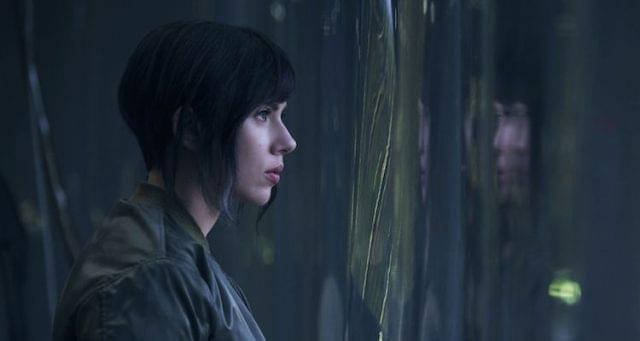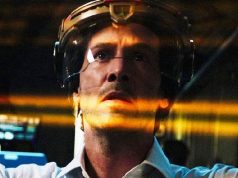
Futuristic cyber-thriller “Ghost in the Shell” is loaded with advanced technology, but it’s in the service of a disappointingly basic plot with few surprises. Add to that the bafflingly tone-deaf treatment of racial and cultural issues and you’ve really got a “Why’d they bother with this?” situation on your hands.
In a heavily CGI’d future Japan with a diverse population (“diverse” meaning both Japanese and European), people routinely enhance their physical or mental abilities with cybernetic add-ons. Plug a dongle into the back of your neck and boom, you’re fluent in Russian. Or robot eyes with X-ray vision. Just about everyone is part-cyber now, the downside being that they’re susceptible to hacking, like a computer, the upside being that, at long last, white men can jump.
Our heroine is a super-soldier called the Major (Scarlett Johansson), the first case of replacing every part of the body except the brain. Her brain — and thus her soul, her self — was supposedly rescued from a dying refugee, though Major doesn’t remember her pre-robot life, so wink wink. Cared for by compassionate Hanka Robotics scientist Dr. Ouelet (Juliette Binoche), who assures her she’s still human, and supervised by a growling government functionary (Kitano Takeshi), Major leads the cyber-crimes team that investigates when a terrorist named Kuze (Michael Pitt) starts hacking civilians and killing important Hanka scientists.
The film, directed by Rupert Sanders (“Snow White and the Huntsman”), becomes a spiffy-looking but dull police procedural as Major and her lunkhead partner, Batou (Pilou Asbaek), pursue leads and track Kuze. Since it’s The Future, this routine police work has some twists — cops can communicate telepathically while sneaking around, and Major can sometimes turn invisible (this is not explained, nor do I accept invisibility as a standard robot feature) — but make no mistake, it is routine. Questions about humanity and the soul and the essence of life are vaguely suggested but never really dealt with; the same goes for the ethical dilemmas presented by mixing technology with biology.
I’m told that Masamune Shirow’s comic-book series and the subsequent animated TV show based on it explored these issues more thoughtfully. The film, credited to Jamie Moss (Street Kings) and William Wheeler (Queen of Katwe) after years of rewrites, is content to throw a lot of tech jargon and cool gadgets at the screen and call it a day. As the investigation continues, Major starts asking questions about her own past and Hanka Robotics’ history of cyborg experimentation, leading to revelations and discoveries that will shock her but not you. Still, as with most police procedurals, there’s a certain pleasure in seeing the ritual play out.
I’m more fascinated by how the film addresses the cultural difficulty of mostly white Westerners adapting a very Japanese, very Eastern-influenced story after casting a very non-Japanese actress in the lead role. The way the film addresses it is to ignore it, but it can’t help coming up. Major’s boss only speaks Japanese, but she replies to him in English, even though robots can speak any language they want to. Does she just … not want to? Why wouldn’t a cyborg built in Japan have Japanese as its default language anyway? And why does a Japanese robotics firm put the brains of Japanese people into caucasian-looking robots, and then also give the robots black hair and eyebrows, as if trying to pass them off as Japanese? When it comes to these matters, you’re better off following the filmmakers’ example and just not thinking about it.
C+ (1 hr., 47 min.; )





